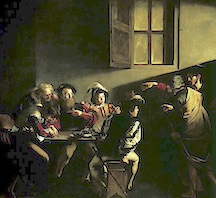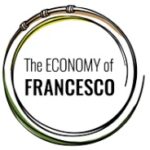Address of His Holiness Pope Francis to the Soldiers of the Guardia di Finanza (Finance Police),
on the occasion of the 250th anniversary of its foundation
Clementine Hall – Saturday, 21 September 2024
“In tradition, the future”. This is the motto of your 250th anniversary
Dear members of the Guardia di Finanza (Finance Police)!
I am pleased to greet you; I saw you this morning when you came here. I greet the Minister of Economy and Finance, the Commander General and all the officers. I greet and thank the Military Ordinary Bishop and the Chaplains.
“In tradition, the future”. This is the motto of your 250th anniversary.
The future lies in tradition. It refers to the roots that led to the foundation of the Guardia di Finanza and gave it a direction of growth. Born as a special corps for control and border defense, it has taken on the tasks of fiscal and economic-financial police, maritime police, with an important mission in the field of rescue, both at sea and in the mountains. A historical reminder of this commitment is the help offered to Jewish refugees and persecuted people during the two great world wars.
A vast sphere of action, therefore, that intends to respond to problems with the concreteness of presence and timely action, while conveying a cultural alternative to certain evils that risk polluting society.
Your patron saint is St Matthew apostle and evangelist. He, in fact, had been a “publican”, that is, a tax collector, a profession that was doubly despised in the time of Jesus, because it was subservient to imperial power and because it was corrupt. I like to go to the church of the French [St. Louis] to see that Caravaggio, “The Conversion of Matthew,” which he symbolizes so deeply. Matteo represented a utilitarian and unscrupulous mentality, devoted only to the “god of money”.
Even today, a similar logic affects social life, causing imbalances and marginalization: from the waste of food –it is a scandal! –to the exclusion of citizens from benefiting from some of their rights.
The state can also be a victim of this system, even those states that, despite having enormous resources, remain isolated financially or in the global market. How do you explain the hunger in the world today, when there is so much waste in developed societies? It is terrible. And another thing: if they stopped making weapons for one year, world hunger would end. Better weapons than solving hunger…
In this context, you are called to contribute to the justice of economic relations, verifying compliance with the norms that govern the activities of individuals and companies.
Therefore, watch over the duty of each citizen to contribute to the needs of the State according to criteria of equity, without privileging the strongest, and oppose the inappropriate use of the Internet and social networks.
Whether in the collection of taxes, or in the fight against undeclared and underpaid work – this is another scandal -, or in any case work that is detrimental to human dignity, your action is important.
And all this is your concrete and daily way of serving the common good, of being close to the people, of fighting corruption and promoting legality. That corruption that is done under the table.
The word “corrupt” – “corrupt-broken” – “reminds us of the broken heart, the broken heart, stained by something, ruined. […]
Corruption reveals an anti-social behavior so strong that it dissolves the validity of the relationships and pillars on which a society is based.” Therefore, the answer, the alternative does not lie in norms alone, but in a ‘new humanism’. [1] Re-founding humanity.
The gaze of Jesus, resting on young Matthew, says that the dignity and life of man are the heart of the life of a people. You can also contribute to the emergence of this new humanism through the work you offer to the young people who ask to join the Guardia di Finanza Corps and attend its schools. Perhaps at first they only look for a job, but then they find a specific formation, which, in addition to providing them with the indispensable notions and experiences, also becomes education for life and for the common good.
Matthew, in a certain sense, moved from the logic of profit to that of justice.
But, in the school of Jesus, he also went beyond equity and justice and came to knew gratuity, the gift of self that generates solidarity, sharing, inclusion.
Gratuity is not only a financial dimension, but it is a human dimension.
To become [people] at the service of others, for free, without seeking one’s own profit.
Because, if justice is necessary, it is not sufficient to fill those voids that only gratuitousness, charity and love can heal.
You experience this, for example, when you organize the reception and rescue of migrants in distress in the Mediterranean. Thank you for that, thank you.
In your courageous responses for natural disasters, in Italy and elsewhere.
But let’s not forget the fight against the scourge of drug trafficking, the merchants of deat.
Your service does not end with the protection of the victims but includes the attempt to help the rebirth of those who err: in fact, by acting with respect and moral integrity you can touch consciences and show the possibility of a different life.
In this way, too, an alternative can and must be built to the globalization of indifference, which destroys with violence and war, but also neglects the care of society and the environment. In fact, the wealth of a nation lies not only in its GDP, but also in its natural, artistic, cultural and religious heritage, and in the smiles of its inhabitants, of its children.
Once, a head of state told me: “I have a special measure: the smile of children and the elderly. When both smile, things are not so bad in a society.” It’s interesting. And this fosters creativity, openness to the world.
You yourselves are citizens who guard this “richness” of Italy, but who are ready to go out in international missions. We need this impulse of solidarity with others as a path to peace and as a hope for a better future!
Sisters and brothers, I congratulate you for your collaboration in nourishing the trust and hope of the people. This people to which we all belong. And nourish trust, hope and smiles. I will come back to this. The thermometer is: are the children smiling? Are the elderly smiling? Don’t forget.
And on this important anniversary, it fits well with the theme of the Jubilee that the Church is preparing to celebrate, “Pilgrims of Hope”.
I cordially bless you, I bless your work and your families.
Please don’t lose your sense of humor, please, this is health! And I ask you to pray for me.
Thank you very much.


